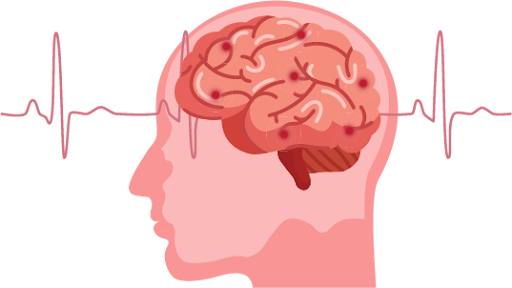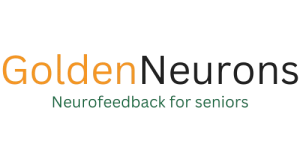Feeling off but don’t know why?
You’re not tired, but you can’t focus.
You’re not in danger, but your body feels tense.
You’re not lazy, but everything feels like a mountain to climb.
Your brain might just be out of rhythm.
🧠 Your Brain Runs on Electrical Rhythms
Inside your brain, millions of neurons are constantly firing — but not randomly. They fire in patterns called brainwaves, which come in different speeds (frequencies) and control everything from your sleep to your stress levels.
- Delta waves (very slow) support deep sleep
- Theta waves are dreamy and meditative
- Alpha waves are calm and reflective
- Beta waves are alert and focused
- High beta is fast and intense — useful in a crisis, exhausting when stuck
When these rhythms are balanced and in sync, you feel clear, calm, and connected. But when they’re out of tune, life feels harder than it needs to.
🎶 What Happens When the Brain Is Out of Tune?
Imagine an orchestra where the drums are pounding too fast and the violins are barely playing. That’s what it’s like when your brain’s rhythms are out of balance.
Depending on the imbalance, you might experience:
- Too much beta activity → anxiety, racing thoughts, tension
- Too much delta or theta → sluggishness, fog, lack of motivation
- Too little alpha → difficulty relaxing, sleeping, or letting go
- Disorganized rhythms → overwhelm, emotional reactivity, poor focus
You’re not broken. Your brain is just trying to function with an offbeat internal rhythm.
🎧 How Neurofeedback Helps Tune the Brain
Neurofeedback is a gentle, drug-free way to help your brain get back in sync.
Using sensors and specialized software, neurofeedback gives your brain real-time feedback about its own activity — kind of like holding up a mirror.
And brains are smart. Thanks to neuroplasticity, your brain notices patterns that aren’t working well and starts adjusting on its own.
It’s like giving your brain a tuning fork — and watching it slowly come back into harmony.
Session by session, neurofeedback helps your brain:
- Improve focus and attention
- Reduce anxiety and over-arousal
- Support deeper, more restorative sleep
- Balance emotional regulation
💡 The Takeaway: You’re Not Broken — Just Out of Tune
You’re not broken. You’re just out of tune.
And your brain can learn to find its rhythm again.
Neurofeedback might just be the tool to help you get back in sync.
🎯 Ready to Help Your Brain Find Its Rhythm Again?
If you’ve been feeling foggy, anxious, overwhelmed, or just off — you’re not alone. And you’re not broken. You might just be out of tune.
✨ Neurofeedback can help your brain learn to settle, focus, and restore its natural balance — one gentle session at a time.
We’d love to support you on that journey.
Reach out for a FREE consultation to learn more or schedule an EEG brain map.
A: Brainwaves are patterns of electrical activity in your brain. Different types of waves (like delta, theta, alpha, beta) reflect how your brain is functioning in each moment — whether you’re focused, relaxed, sleepy, or stressed. When your brainwaves are balanced and in sync, you tend to feel clear, calm, and emotionally steady. When they’re out of rhythm, you might experience brain fog, anxiety, trouble sleeping, or difficulty focusing.
A: Many people notice they just don’t feel like themselves — maybe they’re foggy, overwhelmed, anxious, or struggling with focus or motivation. These can all be signs of brainwave dysregulation. We offer EEG brain mapping as part of our neurofeedback training, which gives a clearer picture of your brain’s activity and helps identify which rhythms are overactive, underactive, or out of sync.
A: Neurofeedback gives your brain real-time feedback on its own activity — usually through sound or visuals. It’s like holding up a mirror to your brain. Over time, your brain starts to recognize unhelpful patterns and adjust itself, naturally moving toward a more balanced rhythm. The result? More focus, better sleep, improved mood, and a calmer nervous system.
A: Yes — neurofeedback is a non-invasive, drug-free, evidence-based form of brain training that’s evidence-based and safe. It doesn’t force anything or “zap” the brain. It simply gives your brain more information so it can self-regulate more effectively. Most people find it gentle, relaxing, and even enjoyable.
A: Neurofeedback can support both children and adults dealing with anxiety, ADHD, sleep issues, emotional ups and downs, chronic stress, and more. Even people who simply want to enhance focus and mental performance can benefit. Every brain has a rhythm — and every brain works better when it’s in tune.



